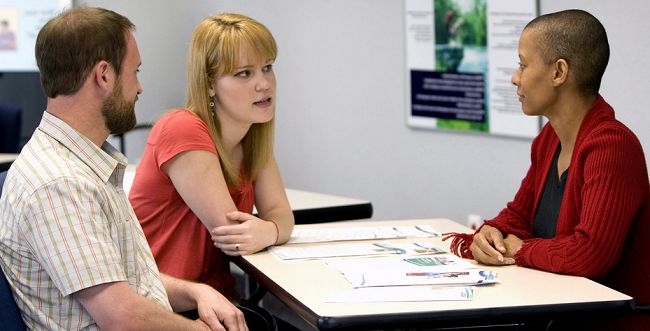You might have never thought about it but an average student spends more time with their teachers (when awake) every week day than they spend with their parents. On a usual day, by the time parents reach home and kids get home after attending after-school activities. After all this, there are only a couple of hours left to have dinner, do homework, and go to bed.
Check out – How to Improve School Attendance
Every activity is equally and very important. Indubitably, parents can get some quality time at dinner, while helping them at homework, and in transit in the car. But when parents are not there there’s another adult who teaches, influences and have fun with the kids for at least 6 hours in a day –and that is their teacher.
When parents and teachers work together as a team then kids perform better in school. When there is trust between them, kids can’t shift the blame on one another when they are challenged by some work or want to avoid a task. Good communication between them aids in accomplishing tasks, prevent scaling of problems and helps in managing big problems.
A teacher has to learn personalities and progress of hundreds of students every year and that too in a manner so that the teacher can respond to the queries of every parent.
Parents want the teachers to know their child’s personality and progress thoroughly so they can get responds to queries. They want the teachers to inform about them about the progress.
What we can see is that a strong bond between teachers and students‘ parents can pull the child out of any hardship.
Here are a few things that parents can do to establish a partnership with our child’s teachers.
Introduction to teacher.
Introduce yourself right at the beginning of the semester. Don’t wait for some problem to rise before contacting the teacher. Look for a way to greet the teacher, so that the teacher can link your face to your name, and to make a cordial connection. If you cannot contact the teacher immediately before or after the school due to school norms, then e-mail the teacher and ask for a convenient time to stop by. You don’t need to have a long talk, just a simple introduction. This is crucial just so that the teacher knows about you and that you are a parent concerned about your child’s education.
Introducing your child to the teacher.
An elementary class teacher has about 20-40 new students every year while secondary class teachers have about 200 new students to teach. You can help them by writing a brief note or email to the teachers telling them about the strengths and weaknesses of your child, also add interests and your goals. You can also provide your phone number and preferred time span.
Attend open house.
Teachers feel more convenient in helping those students whose families show interest in their studies. An open house or back-to-school night is one of the perfect times to know the teacher’s goals for the year and the approach. Teachers spend hours preparing their lessons and classrooms. Look around carefully in the room and pass a positive feedback to whatever you like about the classroom. However, remember this is not the time to load the teacher with your queries. Other parents are there as well. If you want to have a thorough discussion, then book an appointment for a parent-teacher conference.
Prepare well before parent-teacher meetings.
You have to remember that the teacher’s time is precious. Reach on time and don’t take extra time. Jot down the things that you think are going well and your concerns as well. Show the list to the teacher and then go through each item in the list together. If both the teacher and parents keep track together then they can cover up every concern.
Don’t forget the golden rule.
Always think that the teacher has good deeds behind every action. Teachers opt for this profession because they like children and teaching. Don’t go by anyone else’s opinion for example your child’s opinion –and all those negative opinions. Everyone has different opinions like you may like someone whom your best friend detests completely.
Don’t forget that the teacher is also a human and he or she also has bad or good days. They may have a crisis in their personal lives. They too get overwhelmed by all the expectations in a day. If there is a time when the teacher seems unreasonable, then start by asking if everything is okay. Being supportive may help turn things around easily.
Have a regular communication.
The best way would be email to connect. Try to send a comment about what your child has brought from school to teacher every few weeks. Always compliment the teacher for interesting lessons and moments that your kid keeps on repeating once back from school. Acknowledge the teacher for any special efforts made by them on your child. If there is any problem, then inform the teacher earlier. Inform the teacher about any concerns that are going on in home that should be kept in mind while dealing with your child. Children don’t leave family crises at home. Conversely, they don’t leave excitement about special events at home either. Unhappy or excited kids are always distracted from school work.
Help them.
Due to the strained economy the class size has increased but there is a lack of number of professionals, and cut in supply of budget. If you can manage, then offer to help the teacher one day in a week, there are many teachers who welcome teachers involvement in class. If you are particularly good at something that has utility in the curriculum, then the teacher would really appreciate your guest appearance to enrich the class. A lot of appreciation is given to those parents who invest time in preparing lessons at home and bring it in the class. Still there are other ways to help like donating tissues, pencils, and art supplies to the class, which are equally commendable.
You have to ask for permission first. Different schools have different policies for participation of parents and donations. Don’t feel bad if you are turned down, it is not a personal matter but a matter of school policies.
When problems occur
This is the stage when having a good relationship with your child’s teacher is finally needed. You know that you and the teacher have always worked for the best of your child. If your child feels ill-treated by the teacher or a case of mean behavior, then try to stay neutral about the issue unless you have better insight into the case. Never talk negative things about the teachers in front of your child. You should rather email or call the teacher and ask for teacher’s point of view. You are the members of the same team. Don’t be offensive or defensive on your child’s front. Intangible focus by both parents and teachers helps go through the problem at hand, the problem being either a need for practice with a skill or an attitude transplant, everything can be sorted out easily.



